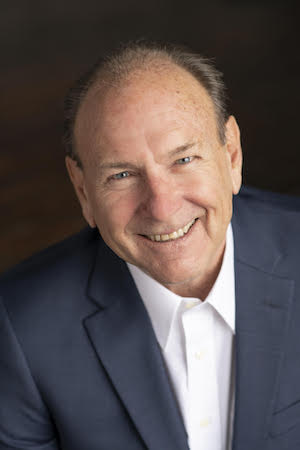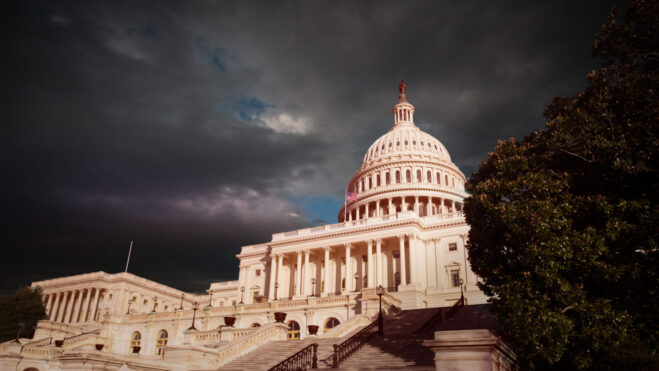Schuetz: The ‘Ban Or Bankrupt’ Bookmaking Model Sinks Its Teeth Into The US
In short, if you are a good bettor, you will be banned; if you are a bad bettor or suffer from a gambling addiction, the betting operators will work to bankrupt you through a variety of ploys and inducements.
7 min

I was recently contacted on a back channel on X (Twitter) by a gentleman from the U.K. who I did not know. His name is Brian Chappell. Basically, what Brian suggested is that we in the U.S. are in the early stages of a learning curve when it comes to understanding how online sports bettors are being treated. He suggested that he had seen this all before, first in his country and then in Australia – and now it is grabbing a hold in the U.S.
I found all of this most interesting, and I forwarded him my email and requested that we continue this conversation via Zoom. He agreed. We have had several discussions.

Many moons ago Brian received his bachelor’s in education and his master’s in philosophy and used these tools to become a teacher. Margaret Thatcher’s policies led him away from his teaching post, however, and he became a lecturer and health researcher, becoming involved in neuroscience recruiting/education, as well as working on neuroscience policy for the National Health Service. He also authored several books.
Brian was also interested in betting, having spent a bit of time working in a friend’s betting shop in his early days. He also has maintained a lifetime willingness to bet on the horses. He argues he is good, but not great.
In 2015, Brian joined two colleagues in forming Justice for Punters (punters is an English expression for bettors), with the website being launched in 2016.
This effort was undertaken not as a profession but as a passion. It was volunteer work. As Brian relayed to me: “All we wanted was for the gambling industry and its regulators to play fair and tell the truth.” He argued the whole key was transparency, and it appears that the online sports betting industry avoided transparency like the plague.
He also added that his life had taught him that it was important at the end of the day to be proud of what you did. In short, life was really about a person’s integrity.
The ‘model’ at work
What Brian was troubled by back in 2015, and what was a primary driver of Justice for Punters (J4P), is what he now refers to as the “Ban or Bankrupt Model” that had taken root in the U.K. In short, if you are a good bettor, you will be banned; if you are a bad bettor or suffer from a gambling addiction, the betting operators will work to bankrupt you through a variety of ploys and inducements. Moreover, Brian is very much of the opinion that the U.K. bookmakers exported this model to Australia, and they now find it becoming well entrenched in the U.S. betting environment.
With the launching of the J4P website, Brian’s group began receiving contacts from punters who were annoyed. They felt they had been lied to, exploited, cheated, taken advantage of, and a whole slew of things they were not happy about. Through the website, he and his partners began working with bettors who believed they had been mistreated, and to date, the collections from operators paid to bettors from these efforts have exceeded £3 million.
There are challenges to all of this. One thing that Brian and his colleagues have found is that operators have settled with players for what appears to have been abusive or otherwise inappropriate behaviors on the part of the operator. Unfortunately, these settlements come with non-disclosure agreements including a provision that the regulator cannot be informed of the terms or reason for the settlement (referred to as gagging orders across the pond). This implies that the regulators are often flying blind as to what is happening within their regulatory domain. It might be an interesting exercise for U.S. regulators to inquire if any of their licensees have executed such NDAs.
The J4P group discovered that the gaming press initially followed them, and then lost a degree of interest as the gaming industry began to find J4P to be quite annoying. Brian and his group are a favorite among the press that is not dependent upon gaming advertising and is often featured on the BBC’s “You & Yours,” and within the pages of the Guardian, Financial Times, and many others (as an aside, the BBC always invited the betting shops to appear on camera with a J4P story. In true form of the licensees of the Massachusetts Gaming Commission, they never showed up).
The success of J4P became evident fairly quickly. David Purdum, a noted U.S. writer for ESPN, discussed Brian in 2018 as the U.S. was starting to launch its sports betting model. The 2018 article title was “Won and Done? Sportsbooks Banning the Smart Money.” Mr. Purdum’s theme was captured in the first line of the story – “Already a hot-button issue in the United Kingdom, a controversial bookmaking practice is starting to spread in the U.S.’s growing legal sports betting market, too.
Brian described the change in betting in the U.K. to Mr. Purdum as it evolved: “They were no longer bookmakers,” Chappell said. “They became corporations that had to increase their profit every six months. They were no longer run by traders, they were run by investment bankers and accountants, who were going to the older generation asking, ‘Why are you letting people win at all?'”
The news began to grow worse for the bettors in the U.K., often with the press being guided by the invisible hand of Brian and the J4P group. In 2022, the Financial Times published “Ad tracking by online gambling industry comes under scrutiny.” This was a story of using sophisticated data analytics to generate increasing gaming behavior on the market, including using third-party tracking systems with mappings of financial and consumer preferences of the population. As the FT reported: “One advertising partner, Signal, owned by credit reporting giant TransUnion, had a dossier of 186 attributes for an individual, including their propensity to gamble, their favorite games and their susceptibility to specific types of marketing.” Signal, according to the FT, has since ceased operations in the U.K. due to this controversy.
The J4P group did have successes. In Australia, working journalists and advocates for fairer gambling developed minimum bet laws for the horseracing industry (that link is a great read, by the way) which mandates the stakes the operators must accept. This was a huge step forward for the efforts to offer fairer gaming experiences for the Australian horse bettor.
The main issues that the J4P has addressed beyond the ban & bankrupt model are its efforts and challenges with self-exclusion, terms and conditions, advertising and marketing, and withdrawals. They have learned this from working with and aggressively interacting with everyone in the betting ecosystem who will communicate with them. Moreover, they have received the insight of many who have left the operations side of betting, and many of these felt shame for the tactics employed by the operators against the betting public.
Doomed to repeat it
I introduced you all to Brian, for it seems that he has something important to share with us in the United States, and it is always better to learn from those before us, rather than being drug along the learning curve unprepared. In essence, Brian has been working now for close to a decade to protect and safeguard betting consumers. One might think that this may be a good task for the government and the regulators to perform, but that was not happening, so Brian and his band of volunteers set out to do what they could. It seems that they have done a lot. He should feel proud.
Many will be oblivious to Brian’s message, for after all, he is not writing checks to politicians to cause them to rush into offering sports betting in a jurisdiction with regulators who have little idea of what they are doing.
Brian is speaking from the heart, and he is cool with betting, but he wants everyone to understand that the operators may be reasonably indifferent to everything except market share and profits. And their interaction with the players is often to limit them or financially groom them.
Brian is also slowing down and his partner died a few years back. He has tried to shape-shift the website into more of a self-service mode, and we will see how that works.
During my time getting to know Brian, I often thought of the Massachusetts Gaming Commission. My sense is they would like Brian hanging about, for they seem to be a particularly curious group. They also seem to want to understand what is going on and to do the right thing.
While I am confident that many regulatory agencies that are overseeing sports betting in the U.S. essentially do not have a hint, the MGC is clear that it does not understand all of the ghosts in the machine, but it seems they want to learn. They demonstrated this desire to learn by offering a sports wagering roundtable on limits on May 21 of this year. That is such a powerful step and it is unfortunate that it is so rare. What was unfortunate about this event was that the betting industry apparently panicked and ran, totally blowing them off.
As the MGC moves forward, they need to learn the lesson of Brian that it may not be just about limiting, for in the U.K. and Australia – it was all about banning and bankrupting.
One of the ironies of all of this is that the industry partially justified its existence by suggesting that its presence would curtail betting on the offshore markets. Yet the firms generally tell the smart players to pursue the offshore market because the U.S. operators are primarily interested in the soft and addicted play.
One wonders how sustainable such a model is, and whether this was what the leadership in the U.S. wanted when they chose to legalize online sports betting.
Richard Schuetz entered the gaming industry working nights as a blackjack and dice dealer while attending college and has since served in many capacities within the industry, including operations, finance, and marketing. He has held senior executive positions up to and including CEO in jurisdictions across the United States, including the gaming markets of Las Vegas, Atlantic City, Reno/Tahoe, Laughlin, Minnesota, Mississippi, and Louisiana. In addition, he has consulted and taught around the globe and served as a member of the California Gambling Control Commission and Executive Director of the Bermuda Casino Gaming Commission. He also publishes extensively on gaming, gaming regulation, diversity, and gaming history.






